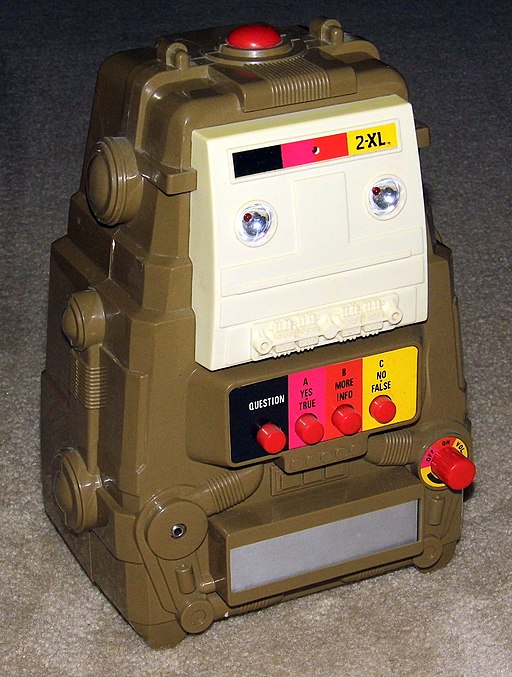Use technology, don’t let it use you.

I am sitting in a lounge at an airport in Mexico City. My flight is in three hours, I am on my way back to Seattle, the city I call home. I visited my family in Guadalajara. I love seeing my parents, my siblings, their spouses, and the charismatic nephews and nieces.
My trip to Mexico was pleasant, and everything was organized using the internet. First, I spent a few days researching flights and my work schedule to ensure I’d maximize quality time with my family and be unobtrusive as possible with my work schedule. Then, when the day came, I got to the airport with the help of a ride-sharing app and used the airplane app to monitor my flight, the gate location, etc. Also, while I spent about an hour reading the book I brought to the trip, technology made it possible for me to watch a new movie while traversing 30,000 ft in the air.
Technology is beneficial. It can help with many things and make our lives easier and even more precise. I was introduced to technology a while ago after receiving a talking robot called 2-XL which wasn’t very technologically advanced, but it sparked my interest. I remember taking it apart one day. I wanted to know how it worked, and I did. Surprisingly, this robot was nothing more than a cassette player with a few automatic functions.

The robot 2 XL used a cassette containing the sounds and phrases it used in response to some buttons on the front. To use the robot, you’ll insert the cassette and turn it on via a knob which also functions as the volume control. It also had four buttons: Question, Yes, More Info, and No. After pressing the question button, 2 XL asked a question based on a theme from the cassette, and then you had the option to answer by pressing the button Yes, No, or More Info. It was a track player, but it had some educational value, and I loved it. Unfortunately, my 2 XL never worked again after taking it apart. But this action definitely sparked my interest in technology in general.
Many years later, I enrolled at a school in Mexico City to learn to code. I don’t think I learned how to program from that experience, but it definitely fed my curiosity. Some more years later, I enrolled in an Information Technology program at a community college. This time, the experience was better. In addition to programming, it helped me learn and improve my English skills, which were clumsy at the time.
Technology continued to be all around me, the commercial internet was born during this time, in the mid-nineties, and it surprised me how quick people were adopting this new medium of communication. At the time, the internet was simple, mainly text-based websites, but there were signs of potential for more. For example, search engines and directories started to appear, showing, even at this early stage, how these tools would replace phone directories and other paper-based tools.
After solidifying its potential to gather and organize information, it was a matter of time before online commerce started to show up. Also, other tools such as email, online maps, and better search engines were introduced. With this, new devices such as faster modems, better computers, and eventually a much faster internet and mobile devices were all around us.
Many of us use technology daily, and the internet is part of it, directly and indirectly. The internet is not only helpful but necessary in many areas. For example, it has helped me learn and gain skills to get better jobs. The internet has also made it possible for my family and me to have a comfortable life. With a few clicks, we can order food, clothes, and home goods, make restaurant reservations, purchase movie tickets, watch movies, and even book an entire trip from a phone or any other device connected to the internet.
Technology and the internet are also crucial ingredients in my professional life. All my work is done via a computer, writing code, designing applications, and communicating with team members and clients. Technology, and more precisely, the internet, are tools I use to make my life easier and more comfortable. Unfortunately, however, the same reason the technology and the internet are readily available and accessible to users is the same reason it makes it a target for misuse and abuse.
Technology itself is, for the most part, harmless. But many applications that use technology and the internet have created algorithms and layouts designed to make you, the user, a tool for it. Many devices, for example, have notifications enabled by default to keep you returning to them and to the applications hosted on them. Electronic notifications are addictive and disruptive, and yet, the sound, the frequency, and the visuals are all designed to make them addictive to them. As a result, most of us can’t stop looking at our phones, checking email, or browsing social media. It’s in part your fault, but the most significant percentage goes to the application and hardware designers, the technologists, which have created an ecosystem to stimulate our senses and curiosity.
I put my phone away when talking to someone, eat without any devices around me, and only check email and social media once or twice a day. I try many things, and yet, I often find myself spending too much time letting technology and the internet use me, instead of me using it.
I will keep trying to reduce the frequency and the time I spend looking at useless information, looking for endless stimulation and a false sense of doing something productive. Instead, I will continue to read more paper books, go for walks, talk to people in person or via the phone, and, if possible, continue to use technology and not let it use me.
Have a wonderful day.
